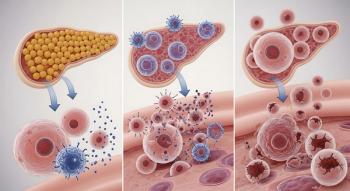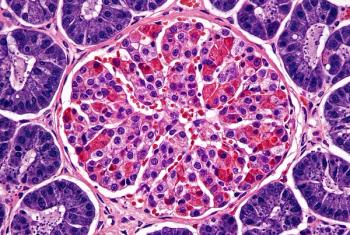
More Studies Needed to Determine if Verapamil can Delay Beta Cell Loss
In a recent trial, verapamil showed a trend toward preserving insulin-producing beta cells in patients with Type 1 diabetes but failed to achieve statistical significance.
The blood pressure medication verapamil has in previous studies shown that it may preserve beta cells in patients with Type 1 diabetes. But recently released trial data showed that there was no statistically meaningful difference in C-peptide levels between those who were treated with verapamil versus placebo.
In Type 1 diabetes, the immune system destroys insulin-producing beta cells. Investigators have been studying ways to preserve beta cells in patients. Calcium channel blockers, such as verapamil, inhibit a protein called thioredoxin that causes cell death and
However, new data released recently at the 2025 European Association for the Study of Diabetes (EASD) Meeting has found that there is a trend toward better C-peptide preservation in patients who have taken verapamil, but the study missed statistical significance marginally.
C-peptide is a byproduct of insulin synthesis and is a measure of beta cell function. Patients with Type 1 diabetes experience a
In the phase 2
Researchers found that, although there was better C-peptide preservation in patients who had taken verapamil, there was no statistically meaningful difference in C-peptide levels between those who were treated with verapamil versus placebo. This was accompanied by no differences in insulin dose or continuous glucose monitor (CGM) metrics. Verapamil was generally safe and well-tolerated, with no unexpected adverse events.
The study investigators concluded that future studies testing verapamil in T1D require a larger population and longer duration — and that verapamil may be a candidate to combine with immunomodulatory disease-modifying therapies.
The Ver-A-Long extension study will follow people who continued with verapamil treatment after this trial ended.
The study was completed through a collaboration between the global partnership of academic researchers INNODIA, Breakthrough T1D, the Helmsley Charitable Trust, and the European Commission’s Innovative Medicines/Health Initiative.
A biotechnology company, TiXiMed, is developing a next-generation verapamil (TIX-100) with a more favorable pharmacological profile. TIX100 is an oral drug that targets thioredoxin-interacting protein.
The company has completed a phase 1 single ascending dose study in 28 healthy volunteers. TIX100 was safe and well-tolerated across all tested dose levels. Clinical and laboratory results demonstrated no drug-related adverse events, no ECG changes and no hypoglycemia, with TIX100 exhibiting a favorable safety profile and predictable pharmacokinetics
Additionally, post-hoc analysis revealed decreased postprandial blood glucose excursion, which is the change in glucose concentration from before and after a meal. The study also showed improved glucose homeostasis after a liquid meal in the two highest dose cohorts.
“These findings also suggest that stronger effects might be observed in people with diabetes and bring TIXiMED closer to delivering a novel oral therapy that addresses the underlying causes of T1D, offering hope for improved outcomes for patients across all stages of the disease,” Anath Shalev, M.D., founder and chief scientific officer at TIXiMED, said in a
TIXiMED is now preparing to initiate a phase 1 multiple ascending dose (MAD) study to further assess longer-term TIX100 safety, tolerability, and pharmacokinetics over multiple doses in healthy volunteers.
Newsletter
Get the latest industry news, event updates, and more from Managed healthcare Executive.

























